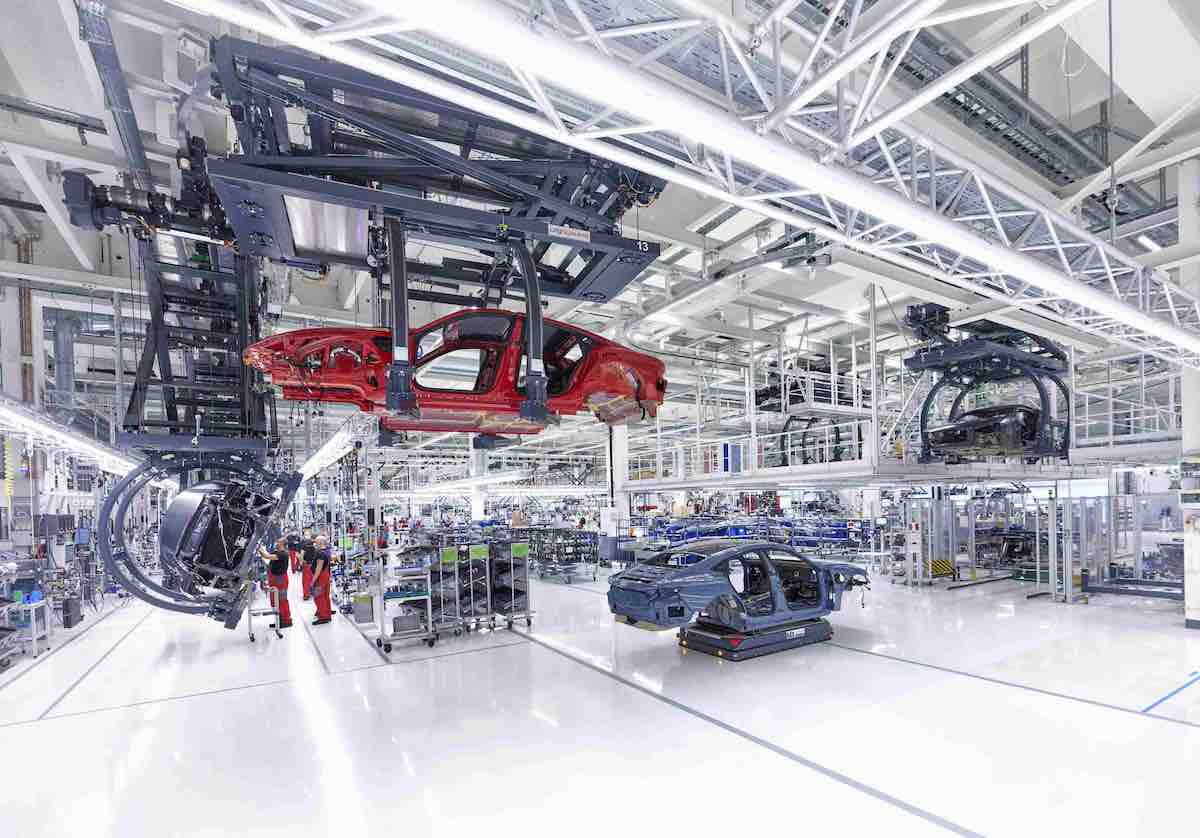As we see out 2022, yet another major auto brand has announced its personal end-date for internal combustion engine (ICE) car manufacturer.
This time it is Audi, which has just announced that as of 2033, it will sell only battery-electric (BEV) cars. Furthermore, as of 2026 Audi will only launch all-electric models onto the global market.
As part of this announcement, Audi has laid out its plan to reach the 2033 goal. Rather than build new ‘greenfield’ sites and scrap the old, new plants will only be built where additional capacity is needed.
To this end, by 2029 Audi plans for all its current production sites to be producing at least one all-electric vehicle model and, depending on local conditions, production of the remaining combustion models will be gradually phased out by the beginning of the next decade .
Battery assembly in Brussels. Source: Audi
Meanwhile, one of the few new plants Audi and its partner FAW are currently planning is a site in Changchun (China).
There, models based on the PPE (Premium Platform Electric) technology platform will be produced locally. With construction set to finish by the end of 2024, this will be the first automotive plant in China where only all-electric Audi models roll off the line.
As part of Audi’s ambitious plans, it also wants to cut annual factory costs in half by 2033, as well as reduce their production ecological footprint. In fact, Audi since 2019 has had a plan in place to make all Audi production sites worldwide net carbon neutral by 2025.
By 2030, the company aims to extend this to cut its absolute environmental impact in the areas of primary energy consumption, power plant emissions, CO2 equivalents, air pollutants, local water risk, and wastewater and waste volumes in half, compared with the 2018 figure .
All worthy aims – and Audi is not the only one working towards these goals. Many of the other VW group brands (of which Audi is one) have similar plans in place – as do Volvo, Tesla and others.
It is great to see manufacturers not only working towards making vehicles with lower driving emissions but as well making their production facilities part of the circular economy regarding overall resource use and emissions.
As this is my last article for 2022: am happy to be writing up a good news story as a nice positive note to end the year 2022 on … and hopefully it’s a pointer to where 2023 will go further in.

Bryce Gaton is an expert on electric vehicles and contributor for The Driven and Renew Economy. He has been working in the EV sector since 2008 and is currently working as EV electrical safety trainer/supervisor for the University of Melbourne. He also provides support for the EV Transition to business, government and the public through his EV Transition consultancy EVchoice.

